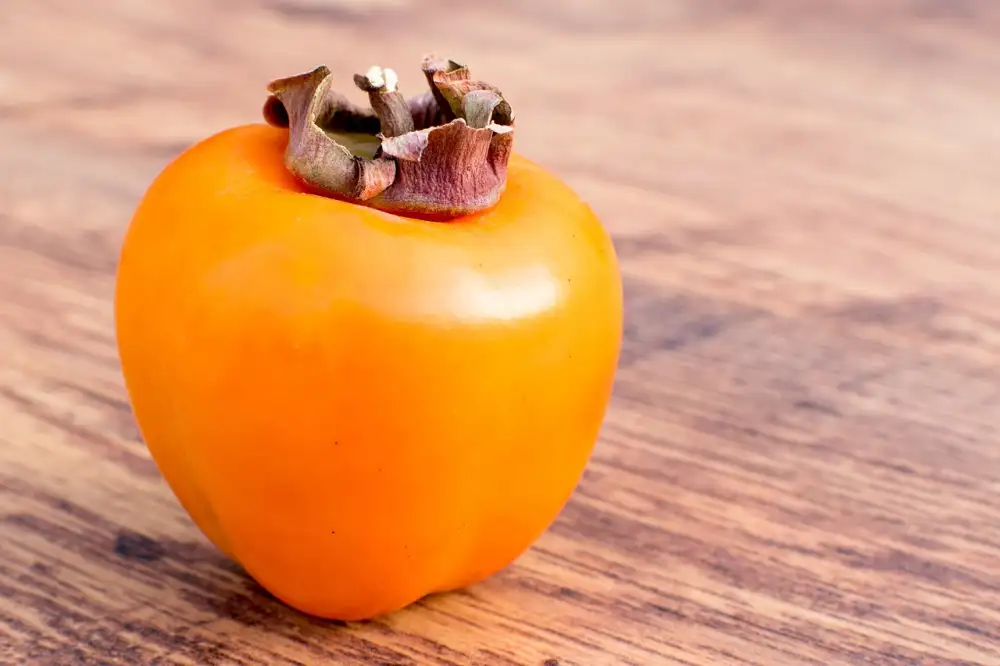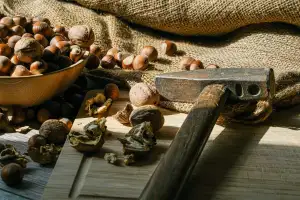The Alluring Persimmon Fruit: A Delectable Delight for Food Enthusiasts

The persimmon fruit, with its vibrant orange hue and irresistible sweetness, is a true delight for food enthusiasts. This exotic fruit has been cherished for centuries for its unique flavor and versatility in culinary creations. Whether enjoyed fresh or incorporated into various dishes, the persimmon offers a burst of delectable goodness that is sure to tantalize your taste buds. Join us on a journey to explore the alluring world of the persimmon fruit and discover why it has become a favorite among food lovers around the globe.
Origins and Varieties of Persimmons
The persimmon fruit, known for its vibrant orange color and sweet flavor, has a rich history that dates back centuries. Originating in China, persimmons have been cultivated for over 2,000 years and were highly prized by ancient emperors. Today, they are grown in various parts of the world including Japan, Korea, Spain, and the United States.
There are two main varieties of persimmons: astringent and non-astringent. The astringent variety, such as the Hachiya persimmon, is tart and must be fully ripe before consuming to avoid its mouth-puckering effect. On the other hand, the non-astringent variety, like the Fuyu persimmon, can be enjoyed when firm or slightly soft and has a milder taste.
Each variety offers its own unique characteristics and culinary possibilities. Whether you prefer the soft texture of a ripe Hachiya persimmon in baked goods or the crispness of a Fuyu persimmon in salads or salsas, there is a persimmon variety to suit every palate.
Nutritional Benefits of Persimmons
Persimmons are not only delicious but also packed with nutritional benefits. They are a great source of vitamins A, C, and E, which are essential for maintaining healthy skin, boosting the immune system, and protecting against free radicals. Persimmons also contain high levels of dietary fiber, promoting digestive health and preventing constipation. Additionally, they are rich in minerals like potassium and manganese, which help regulate blood pressure and support bone health. With their low calorie content and high antioxidant properties, persimmons make a nutritious addition to any diet.
Culinary Uses of Persimmons
Persimmons are a versatile fruit that can be used in a variety of culinary creations. Their sweet and slightly tangy flavor makes them perfect for both sweet and savory dishes. In desserts, persimmons can be used to make pies, tarts, puddings, and even ice cream. They can also be added to fruit salads or used as a topping for yogurt or oatmeal.
In savory dishes, persimmons can be sliced and added to salads for a refreshing burst of sweetness. They can also be roasted or grilled and served alongside meats like pork or chicken. Persimmon chutney is another popular option, adding a unique twist to sandwiches or cheese platters.
The texture of persimmons lends itself well to being pureed or mashed, making them ideal for sauces and spreads. Persimmon jam or jelly is a delightful addition to toast or scones. And let's not forget about persimmon bread! This moist and flavorful treat is perfect for breakfast or as an afternoon snack.
With their vibrant orange color and distinct taste, persimmons are sure to elevate any dish they are added to. So go ahead and get creative in the kitchen with this delectable fruit!
Popular Persimmon Recipes
1. Persimmon Salad: Combine sliced persimmons with mixed greens, crumbled goat cheese, and toasted walnuts. Drizzle with a tangy vinaigrette for a refreshing and vibrant salad.
2. Persimmon Salsa: Dice ripe persimmons and mix with chopped red onion, jalapeno, cilantro, lime juice, and a pinch of salt. Serve with tortilla chips for a unique twist on traditional salsa.
3. Persimmon Bread: Add pureed persimmons to your favorite banana bread recipe for a moist and flavorful treat. Top with a cinnamon glaze for an extra touch of sweetness.
4. Persimmon Smoothie: Blend ripe persimmons with yogurt, honey, and a splash of orange juice for a creamy and nutritious smoothie that is perfect for breakfast or as a midday snack.
5. Persimmon Tart: Create a simple tart by layering thinly sliced persimmons on top of puff pastry brushed with melted butter. Sprinkle with sugar and bake until golden brown for an elegant dessert option.
These popular recipes showcase the versatility of persimmons in both sweet and savory dishes. Experiment with these ideas or create your own culinary masterpieces to fully embrace the deliciousness of this delightful fruit.
Tips for Selecting and Storing Persimmons
When selecting persimmons, look for fruit that is firm but slightly soft to the touch. Avoid any with bruises or blemishes. The color should be vibrant and uniform, depending on the variety. For Hachiya persimmons, choose ones that are fully ripe and have a jelly-like texture.
To store persimmons, keep them at room temperature until they reach the desired ripeness. Once ripe, they can be stored in the refrigerator for up to a week. If you want to speed up the ripening process, place them in a paper bag with an apple or banana.
To extend their shelf life, you can also freeze persimmons. Simply peel and slice them before freezing. They can be used in smoothies or desserts straight from the freezer.
Remember that persimmons continue to ripen after being picked, so it's best to consume them within a few days of reaching your desired level of ripeness. Enjoy the unique flavor and versatility of this delightful fruit!
How to Ripen Persimmons
To ripen persimmons, it's important to understand their unique ripening process. Persimmons are typically harvested when they are still firm and not fully ripe. If you have unripe persimmons, you can speed up the ripening process by placing them in a paper bag with a banana or apple. The ethylene gas released by these fruits will help accelerate the ripening of the persimmons. Keep the bag at room temperature and check on them daily until they reach your desired level of ripeness. Once ripe, persimmons should be stored in the refrigerator to maintain their freshness. Enjoy the luscious sweetness of perfectly ripened persimmons in your culinary creations!
Interesting Facts and Trivia about Persimmons
- Persimmons are known as the "fruit of the gods" in ancient Greek mythology.
- The persimmon tree is native to China, where it has been cultivated for over 2,000 years.
- There are two main types of persimmons: astringent and non-astringent. Astringent varieties need to be fully ripe before eating, while non-astringent varieties can be eaten when still firm.
- The Hachiya variety is the most common astringent persimmon, known for its heart-shaped appearance and rich flavor.
- The Fuyu variety is the most popular non-astringent persimmon, with a squat shape and sweet taste reminiscent of honey.
- Persimmons are packed with vitamins A, C, and E, as well as dietary fiber and antioxidants.
- They are believed to have anti-inflammatory properties and can help improve digestion.
- In Japan, dried persimmons called hoshigaki are considered a delicacy and often given as gifts during the New Year celebrations.
- Persimmons can be used in both sweet and savory dishes, from salads and salsas to cakes and pies.
- When selecting persimmons, look for ones that are plump with smooth skin. Avoid any with bruises or soft spots.
- To ripen persimmons at home, place them in a paper bag with an apple or banana. The ethylene gas released by these fruits will speed up the ripening process.
In conclusion, the persimmon fruit is a true delight for food enthusiasts. Its unique flavor and versatility make it a perfect addition to any culinary adventure. Whether you enjoy it fresh, baked into desserts, or incorporated into savory dishes, persimmons are sure to add a touch of sweetness and depth to your creations. So next time you're at the grocery store, don't hesitate to grab some persimmons and let your taste buds embark on a delectable journey. Embrace the sweetness of persimmons and unlock a world of delicious possibilities in your kitchen.
Published: 03. 12. 2023
Category: Food



